By Kaitlyn Ponce
A hydroid colony no bigger than can be contained in one’s cupped hands may be almost a whole universe in itself – a complete unit of life, with possibly dozens of units in one tide pool
– Ed Ricketts, Between Pacific Tides (1939)
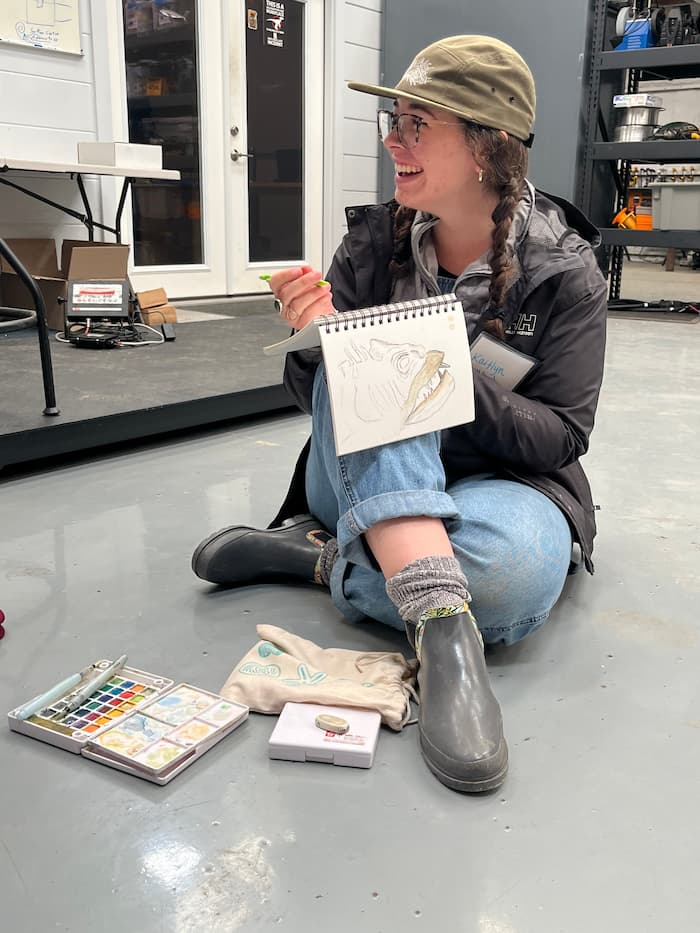

Kaitlyn sketching marine fossils on the final day of the Mentoring Ecosystem (left) and teaching students how to do a plankton tow (right).
I have always felt a natural draw to the ocean. It’s a place that sparks feelings of wonder, continuously leaving me feeling held and inspired. As a kid, I remember the magic of stumbling across burrowing sand crabs, the touch of slimy kelp wrapping around my ankles as it washed ashore, and the awe of looking into a tide pool for the first time and discovering a world filled with more life than I could ever imagine.
Today, this love for the ocean is deeply embedded in my studies as a third-year undergraduate student studying environmental and marine science at Cabrillo College. Through coursework and opportunities such as NOAA’s Phytoplankton Monitoring Network, I have been honored to cross paths with incredible professors, mentors, and to explore a deep passion for accessible education that is rooted in the belief that everyone should have the same opportunity to experience the pure magic of the natural world just that I did. Most recently, my studies connected me with the Western Flyer Foundation’s Mentoring Ecosystem, where I had the chance to put my goals of accessible and interdisciplinary education into action.
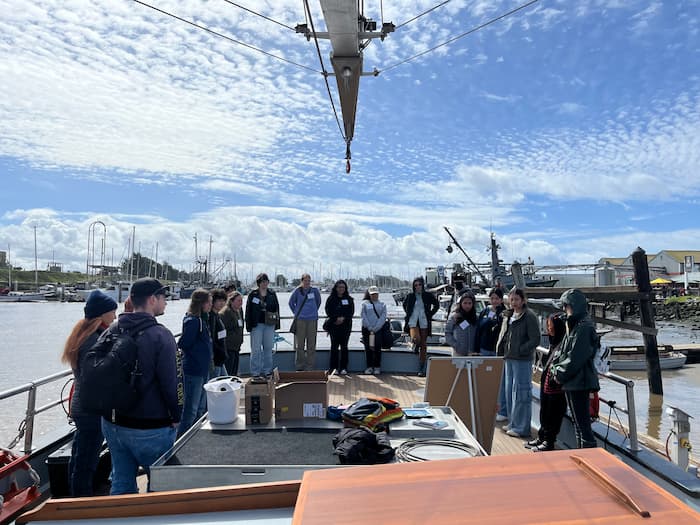
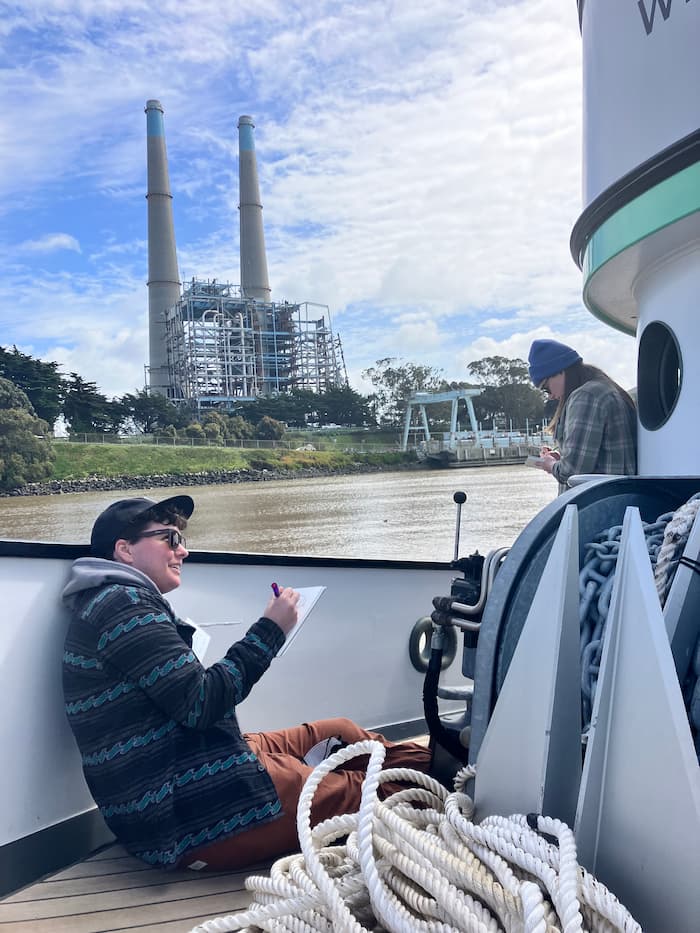
We spent the first day of the Mentoring Ecosystem getting to know each other and the Western Flyer. We interviewed one another about our career paths (left) and learned a few nature journaling skills (right)
My time in the Mentoring Ecosystem began last March when I had the privilege of stepping aboard the historic fishing vessel-turned-outdoor-classoom the Western Flyer. Inspired by Ed Ricketts’s holistic view of ecology, the Ecosystem embraces a networked, intersectional approach to mentoring, where I was eager to share my passion for marine science with fellow ocean enthusiasts. The program brought together a wide-ranging group including high school and community college students, scientific illustrators, and marine scientists. Each time we gathered, we highlighted powerful intersections between the disciplines of art, literature, science, and every world in between, building a space to nurture curiosity within an ocean-loving community.
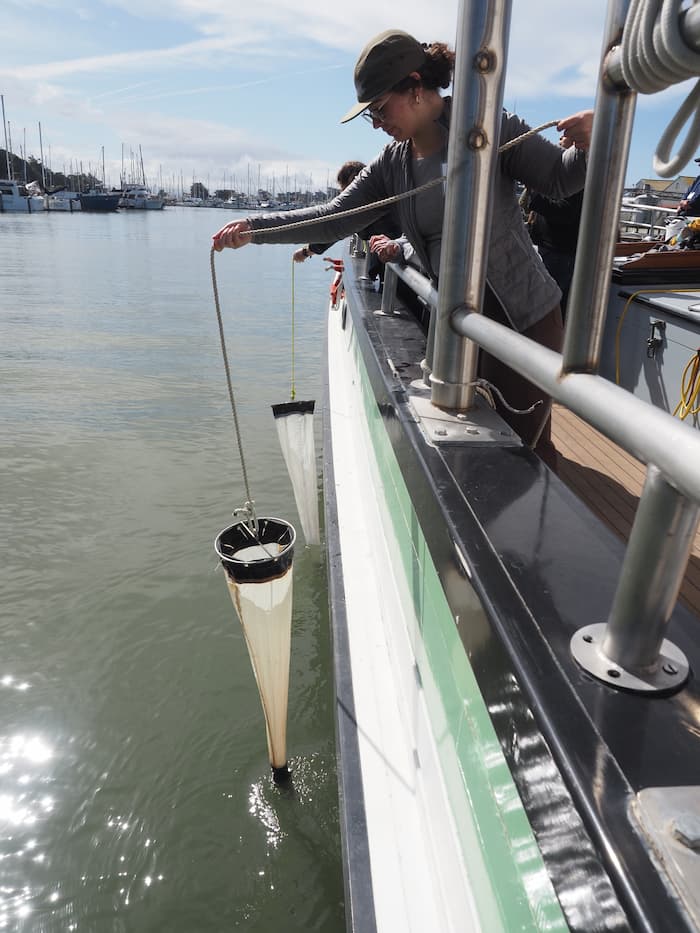
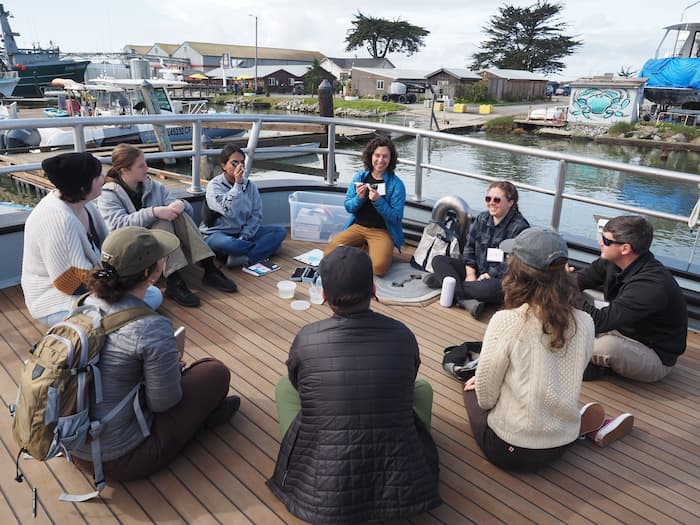
NOAA’s Lisa Uttal joined us for a day exploring the marine science of Moss Landing Harbor. We collected plankton tows (left) to identify and sketch and we measured salinity using refractometers (right).
Over the course of a month, the Mentoring Ecosystem brought our cohort together to make art and collect data. We sampled plankton, sketched fossils, delved into the rich history of the Western Flyer, and collected data about the chemistry of Moss Landing Harbor. Challenging participants to observe is one of the greatest and most powerful tools of science and art, and each activity invited us to ask questions, explore our individual curiosities, and nurture our observational tools by simply stopping to notice. In fact, we spent most sessions beginning and ending with moments of stillness to observe, ask questions, and ponder about the processes of the ocean.
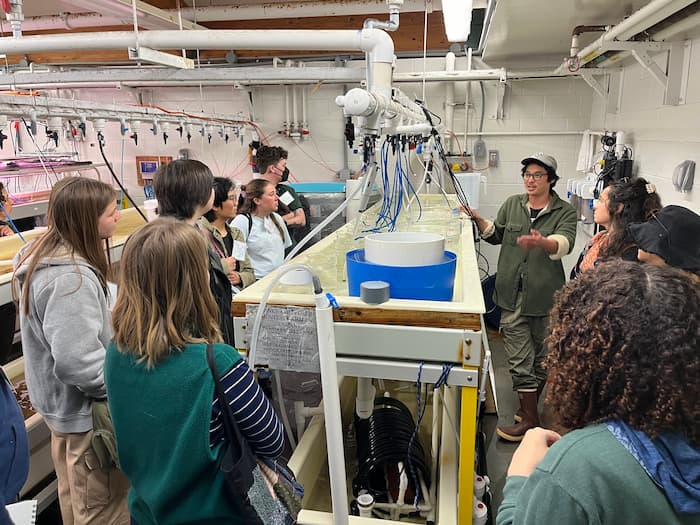
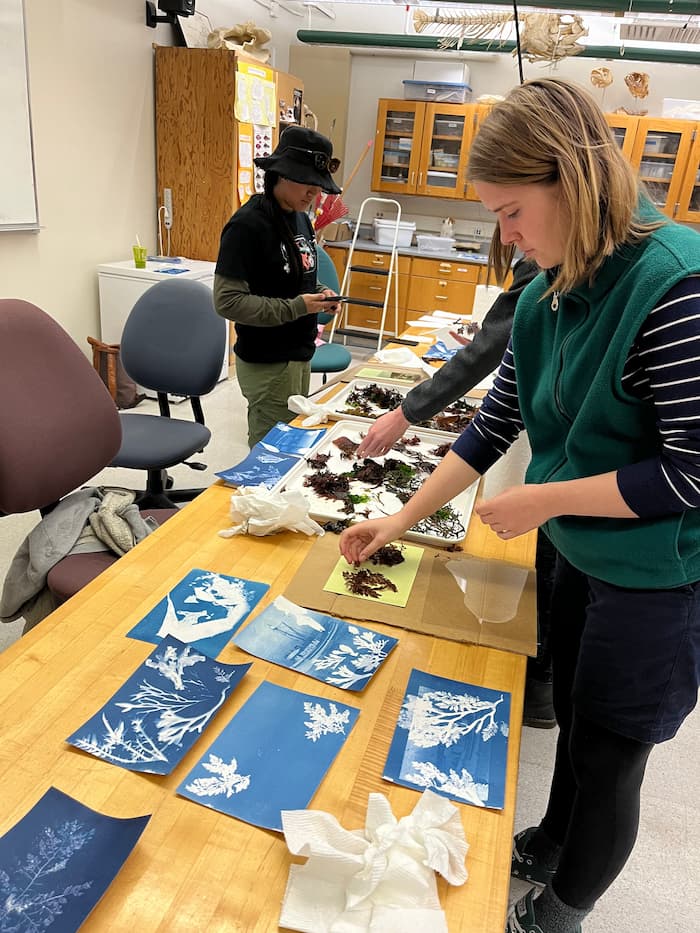
During a visit to the Moss Landing Marine Labs, we learned about careers in restoration aquaculture (left) and made their own seaweed cyanotypes (right).
The month prompted a shift in my entire creative process. As someone who finds themselves collecting data more often than illustrating observations, I recognized a hesitation and feeling of discomfort when it came time to sit and sketch–a sense of uneasiness, rooted in the fear of imperfection. With the encouragement of the Mentoring Ecosystem community, one sketch at a time I found myself viewing art as a tool, rather than something to fear, while field sketching became a chance to dive deeper and connect with my observations.
I deeply valued the vulnerability, willingness, and curiosity that everyone brought to the group, and was eager to learn each individual’s reason for participating. Some noted their artistic journeys, others elaborated on their academic and career pathways–and all were excited for more abundant accessible, interdisciplinary opportunities. Moreover, while everyone displayed unique gifts and brought in their own toolsets the community was able to recognize the power of harmony and collectivity while highlighting the beauty of individual attributes.
I first stepped aboard the Western Flyer with the goal of fostering a community. On our last day, sitting in the same spot on the aft deck, reflecting on our time together, a feeling of deep gratitude for the community–and for the animals, nature, and abundance of life we were surrounded by–washed over me. I walked away with a profound feeling of inspiration and a sense of hope for the future of science, art, and the crossroads at which they meet. I look forward to seeing more of the wonderful work from the individuals that made this possible and the Western Flyer Foundation, as they continue to bring science education to this ocean-loving community and beyond.
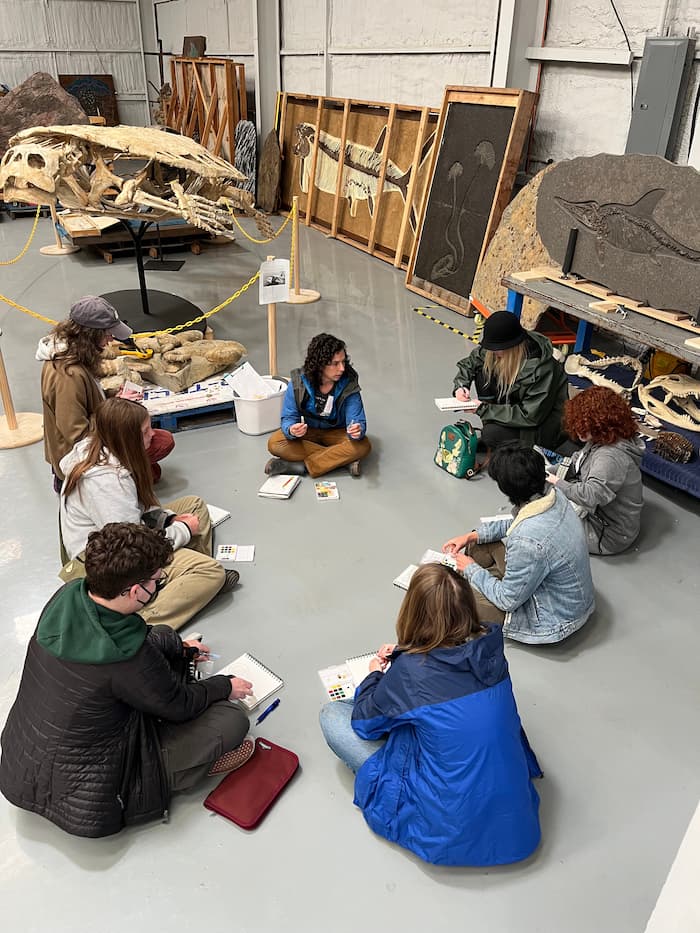
We spent the last day sketching and painting marine fossils and reflecting on our time together.
Posted in Blog, Education, Stories from the Community